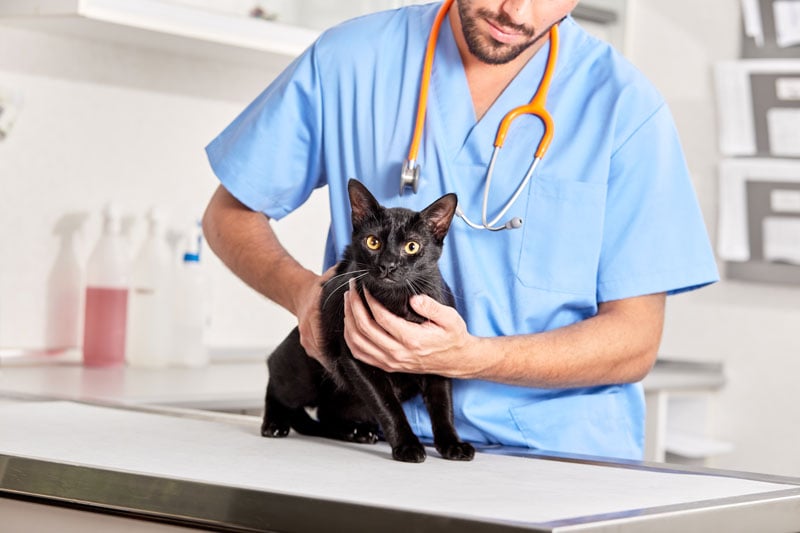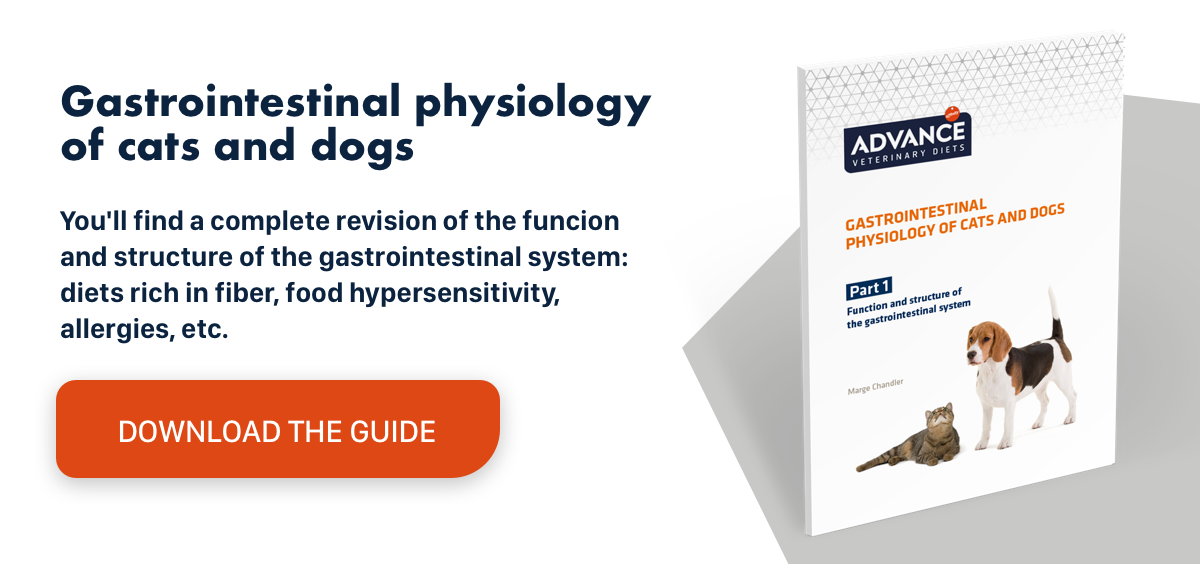Pancreatitis in cats: clinical signs, concurrent diseases and treatment
Collectively, gastrointestinal diseases are among one of the three leading causes of morbidity in cats. This includes pancreatic exocrine insufficiency (PEI), which is the most common problems associated with the exocrine pancreas in cats.
Despite the dearth of information on the clinical presentation of PEI, the limited number of studies conducted have reported the following clinical signs:
Clinical characteristics
- Weight loss
- Unformed stools
- Poor coat of hair
- Others: anorexia, increased appetite, lethargy, watery diarrhoea, vomiting.
Apart from PEI, several other diseases can cause diarrhoea and/or vomiting, including the presence of foreign bodies, hairballs, infections, food intolerance/hypersensitivity and inflammatory bowel disease (IBD). Given the reserved nature of cats, these clinical signs can go unnoticed, and the process may even be assimilated as “normal” if it becomes chronic.
The clinical presentation of PEI in cats often differs from the signs observed in dogs due to a different aetiology (click here for more information on pancreatitis in dogs).
As for age, PEI can affect cats over a wide range of ages, including animals of less than 5 years.

Concurrent diseases
Pancreatitis in cats is often accompanied one or more concurrent diseases in other organs or systems. Vets should suspect comorbidities, as over half of all necropsies performed on apparently healthy cats reveal evidence of pancreatic inflammation.
Chronic pancreatitis in cats is more common than acute pancreatitis, constituting up to 90% of all cases of pancreatitis (unlike with dogs, as discussed previously, in whom pancreatitis is more likely to be due to pancreatic acinar atrophy).
Triaditis is the term used to describe concurrent inflammation of the pancreas, liver, and small intestine. According to different sources, triaditis has been reported in 50–56% of cats with pancreatitis and in 32–50% of those with cholangitis/inflammatory liver disease; so cats with inflammatory bowel disease (IBD) and/or biliary disease should be considered at risk of triaditis.
Other concomitant diseases include diabetes, vitamin deficiencies (B12, folate or vitamin K), intestinal lymphoma, nephritis, pulmonary thromboembolisms and pleural and peritoneal effusion.
Treatment response
The therapeutic strategy includes:
Diet:
- A range of sources of intact novel proteins (low antigen) to minimise exposure to potential allergens or hydrolysed proteins for their high digestibility. As chronic pancreatitis can course in association with IBD and/or cholangitis, these cats also normally respond well to the selected protein sources.
- Reduced fat content to address poor digestion.
- High digestibility, thus improving nutrient absorption and reducing osmotic diarrhoea and gas production.
- The new Feline Gastroentric Sensitive diet provides the correct daily amount of B12.
Supplements:
- Vitamin B12 (cobalamin) supplementation: the absorption of vitamin B12 is complex in cats and depends mainly on pancreatic function and the health of the small intestine mucosa. An additional intake is recommended for cats with a serum level of <300 ng/L (click here for more information on vitamin B12 supplementation).
- Pancreatic enzymes: this treatment should be continued for life after identifying the minimum effective dose.
Most animals respond well to the appropriate treatment for PEI, while a good response seems to necessitate vitamin B12 supplementation.
